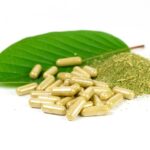Will Kratom Show Up on a Drug Test?
Kratom, a botanical substance derived from the Mitragyna speciosa tree, has gained popularity for its potential health benefits. However, there is often confusion and concern regarding its detectability in drug tests. Kratom is usually not detectable in drug tests as most standard drug tests do not test for the substance. If you are considering kratom use and are subject to drug testing, it's important to understand the factors involved.
Types of Drug Tests
Drug tests can vary in their scope and methods of detection. The most widely used types of drug tests in commercial or professional settings span blood, saliva, urine and hair tests. Each test has different detection windows and sensitivities to different substances.
Kratom's Alkaloids and Testing Methods
When it comes to drug testing, the main concern with kratom lies in its alkaloid content. Kratom contains active compounds known as alkaloids, with the primary ones being mitragynine and 7-hydroxymitragynine. These alkaloids interact with opioid receptors in the body and contribute to the effects of kratom.
Urine Drug Tests: Standard urine drug tests are the most commonly used method for drug screening. However, it's important to note that kratom alkaloids are not typically included in the standard panel of urine tests. These tests are specifically designed to detect common illicit drugs and certain prescription medications, such as opioids, benzodiazepines, amphetamines, and cannabinoids. Kratom alkaloids have a distinct chemical structure and are not chemically similar to the substances typically screened for in urine tests.
Blood Tests: Blood tests have a shorter detection window compared to urine tests but are rarely used to specifically detect kratom alkaloids. Blood tests are more commonly used in situations where immediate impairment or recent drug use needs to be assessed. The alkaloids present in kratom may be detectable in blood shortly after consumption, but it is uncommon for them to be the target of standard drug screenings.
Saliva Tests: Saliva tests are less common than urine and blood tests but may be used in certain situations, such as roadside drug testing or workplace testing. Similar to urine and blood tests, kratom alkaloids are typically not included in the standard panel for saliva tests. Saliva tests usually focus on detecting substances like cannabis, amphetamines, cocaine, and opioids.
Hair Tests: Hair tests have a longer detection window compared to other testing methods. However, it is important to note that kratom alkaloids are not commonly targeted in hair drug tests. Hair tests are more expensive and are typically used for detecting long-term drug use, such as chronic substance abuse. They are not typically designed to specifically detect kratom alkaloids.
It's important to remember that while kratom alkaloids are not commonly targeted in standard drug tests, there may be specialized or comprehensive tests that include kratom alkaloids in their screening panels. If you are undergoing drug testing for specific reasons, such as substance abuse treatment or legal matters, it is essential to communicate any kratom use to the testing facility to ensure comprehensive analysis.
Additionally, it's crucial to obtain kratom products from reputable sources to minimize the risk of impurities or adulterants that could potentially trigger false positives or interfere with drug test results. High-quality kratom obtained from trusted vendors is less likely to cause issues in drug tests.
Understanding the specific testing methods being used and their limitations can help provide a clearer picture of kratom's detectability. However, it's important to stay informed about the legal status of kratom in your jurisdiction, as regulations may vary from one location to another.
Kratom alkaloids, such as mitragynine and 7-hydroxymitragynine, are not typically targeted in standard drug tests commonly used for employment screenings or routine check-ups. These tests are primarily designed to detect commonly abused substances and prescription medications. However, it's important to note that specialized or comprehensive tests may include kratom alkaloids in their screening panels. It's always recommended to communicate any kratom use to the testing facility to ensure accurate and comprehensive analysis. Obtaining kratom products from reputable sources and staying informed about the legal status of kratom in your jurisdiction are also essential factors to consider.
Factors Affecting Kratom Detection
While kratom alkaloids are not commonly targeted in standard drug tests, there are several factors that can influence the detectability of kratom in certain situations. It's important to be aware of these factors to better understand how kratom may be detected under specific circumstances:
Timing of Consumption: The timing of kratom consumption plays a crucial role in its detectability. The presence of kratom alkaloids in bodily fluids, such as urine or blood, depends on various factors, including the dosage, frequency of use, and metabolism of the individual. After ingestion, kratom alkaloids can be detected in urine within a few hours and may remain detectable for up to several days, depending on the individual's metabolism and other factors. In blood, kratom alkaloids may be detected shortly after consumption, but their concentration decreases rapidly over time.
Sensitivity of Testing Methods: The sensitivity of the testing method used can affect kratom detectability. Standard drug tests typically do not target kratom alkaloids and are not designed to specifically detect them. However, more specialized or comprehensive tests may have the ability to identify kratom alkaloids in the system. The sensitivity and specificity of the testing method can vary, and it's essential to consider the specific testing panel being used.
Quality and Purity of Kratom Products: The quality and purity of kratom products can impact the detectability of kratom alkaloids. Obtaining kratom from reputable sources that adhere to strict quality control measures can minimize the risk of impurities or adulterants that could potentially interfere with drug test results. High-quality kratom obtained from trusted vendors is less likely to cause false positives or trigger suspicions during drug screenings.
Metabolism and Individual Variations: Each individual's metabolism and physiological factors can influence the detection of kratom alkaloids. Metabolism varies among individuals, affecting how quickly the alkaloids are processed and eliminated from the body. Factors such as age, body mass, liver function, and hydration levels can also impact the detectability of kratom. It's important to recognize that everyone's body is unique, and the rate at which kratom alkaloids are metabolized can vary.
Specialized Testing: In certain situations, such as substance abuse treatment programs or legal matters, more comprehensive or specialized drug tests may be used. These tests can be tailored to include a wider range of substances, potentially including kratom alkaloids. If you are undergoing drug testing for specific reasons, it's essential to inform the testing facility about any kratom use to ensure accurate and comprehensive analysis.
It's important to note that the legality of kratom can also influence the level of concern or scrutiny surrounding its detection. Kratom's legal status varies across different jurisdictions, and regulations regarding drug testing may differ as well.
Understanding these factors can provide a clearer perspective on the detectability of kratom in certain situations. However, it's always recommended to stay informed about the legal status of kratom in your jurisdiction and to communicate any kratom use to the testing facility to ensure accurate analysis.
Conclusion
In general, kratom is not typically detected in standard drug tests commonly used in employment screenings or routine check-ups. The alkaloids present in kratom are not the primary targets of these tests, which primarily focus on illicit drugs and certain prescription medications. However, it's essential to consider the quality of kratom products, the specific type of drug test being conducted, and individual factors that may influence detection. If you have concerns about drug testing and kratom use, it is advisable to consult with a healthcare professional or the testing facility for accurate information and guidance.
Check out Kenji Kratom today for all of your online kratom needs, spanning premium, high quality kratom powder and kratom extract capsules!





